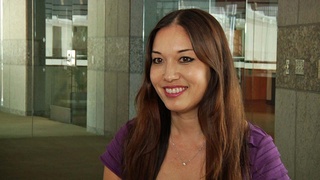Entrevistas
Japanese Culture and the crafting Sushi in the States (Japanese)
(Japanese) It’s weird. I can’t really explain it but, when I’m in America, I feel like ‘I’m Japanese!’ This private, sort of pride of being Japanese grows in me. Especially when I was in Connecticut for 18 years, I kept on thinking, ‘I’m Japanese so I have to behave like a Japanese person.’ Through the restaurant, I wanted my American customers to get to know Japanese culture, or I guess tradition. And this hasn’t changed when I moved back here. Or when I opened this restaurant. Many elderly Nikkei come here and order grilled fish, chirashi (type of sushi with a variety of ingredients sprinkled on the rice) and various bentos, and I always feel like I want them to enjoy the traditional tastes. This is why I do this business. And recently, I think some have begun to understand what I’m trying to do, and it really feels good.
You hear about fusion food, and this and that these days in America, and I’m not against it. But I think it’s the origins of food that are important. Origins such as kombu shime zuke (fish rapped in seaweed) and oshizushi (rectangular pressed-sushi) in the Kansai region. There is 100 years of Japanese sushi history. It started in a time when there were no refrigerators or ice. When I talk about this history to American customers as I serve sushi, they respond with a “oh, interesting” and seem to enjoy the food more.
Fecha: September 10, 2009
Zona: California, US
Entrevista: Izumi Tanaka
País: Watase Media Arts Center, Japanese American National Museum
Explore More Videos












Vida escolar en la posguerra (Inglés)
(n. 1930) Medio japonesa y creció en Japón y los Estados Unidos.

On Challenging Institutions
(1938-2020) Abogada americana-japonesa y activista de derechos civiles

Pop and Balls
(1938-2020) Abogada americana-japonesa y activista de derechos civiles

